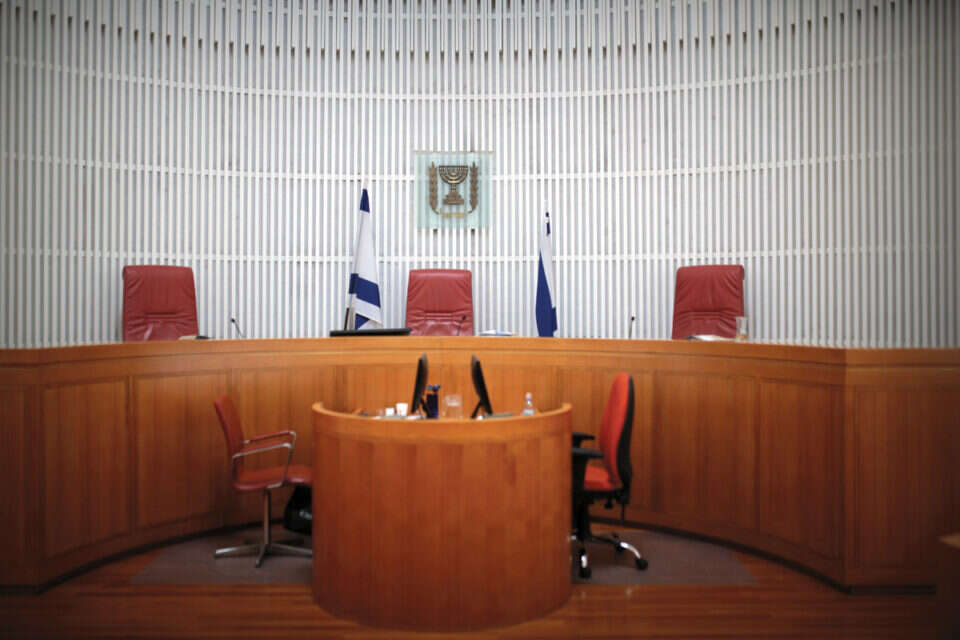The cries to save democracy from the "overcoming clause" are an insidious distraction.
The situation today is the extent of lawlessness that needs to be corrected.
Our public life has been subjected to an illegal usurpation of power by the judges of the High Court of Justice led by Aharon Barak.
He tempted them with the unlimited power that would be given to them, and they chose to ignore the warnings of their previous president, Moshe Landoi, against the arrogance of a Platonic "rule of the wise" instead of democracy.
Now threats are being made to the fate of democracy, the same democracy that Barak and his friends trampled on.
The phrase "immersed and crawled in their hands" describes them well.
There is reason to hope that the intimidation will fail, because the public elected a Knesset committed to withdrawing the serious appeal process of the separation of powers carried out by the High Court. The appeal process was conducted along three paths. First, in 1992, the High Court, without legal authorization, usurped for itself permission to invalidate conflicting laws , in his opinion, fundamental laws.
It was an abductor without any restrictions - neither in the number of Danish judges nor in any privileged majority of the disqualifiers!
The power reached such a point that the High Court recently allowed itself to also discuss the constitutional validity of a fundamental law.
Many have asked on the basis of what he dared to discuss a basic law - is it based on norms that the judges will legislate above the basic laws, that is, they will invent out of nowhere and trample on the separation of powers?
After all, they do not have the legal authority to invalidate an ordinary law (except when there is a technical flaw in its legislation).
So how did they pretend to discuss the constitutional validity of a fundamental law?
Their decision to finally approve it does not dispel the logical and administrative scandal.
A second path to challenge the separation of powers was an unprecedented expansion of the "right to stand", so that not only those directly affected by the state's actions could petition against it to the High Court, and a wholesale and unlimited use of the "reasonableness" criterion for ruling on such petitions.
To this shrewd concoction they added a "creative" interpretation method of the language of the law, post-modernist in nature, which allowed the judges to rule arbitrarily, without obedience to the language of the law or the intention of the legislator.
Thus, for example, the appointment of Yoav Galant to the Chief of Staff was prevented, because "he will not pass the High Court";
And so the High Court allowed Eliad Sharga to argue against Netanyahu's fitness to stand for election, instead of stopping him immediately, due to lack of right to stand before him in such a matter. Citizen Sharga, whose values are close to those of the judges, has superiority over the masses who support Likud. Wonderful democracy. The court will decide If they are allowed to choose Netanyahu.
In this case, he balked at Sharaga's request to deny the right of political representation to Likud supporters.
In the Gallant case, the Netanyahu government was denied the appointment, due to its wrongdoings.
The two cases, although they are not parallel, basically stem from the court's encroachment into districts that do not belong to it.
A third path to challenging the separation of powers is found in constant striving under the authority of the Knesset and its independence.
It reached a low point in the High Court's attempt to dictate to Knesset Speaker Yuli Edelstein when to convene the plenum, on the eve of the establishment of the Netanyahu-Ganz government, and to a further low point in the permission that the transitional government received to sign an important international agreement with Lebanon, without approval from the Knesset.
What is expected of us if we don't stop the bulls at the trough can be learned by seeing that the Supreme Court allowed itself to discuss the validity of a fundamental law, the law of the nation. The voter had his say: this situation cannot continue. The government must legislate in fundamental laws a reduction of the right to stand, the subjugation of legal interpretation to the language of the law and the intention of the legislator, and minimizing the reason of "reasonableness" to reasonable dimensions.
Regarding the disqualification of laws: either it will be completely prohibited by the Basic Law, or it will only be allowed in the full composition of the High Court and with a majority of 9 judges, and then the Knesset will be able to overcome the disqualification with a privileged majority to be determined. Otherwise, the High Court will be the sovereign - not the public that has just elected its representatives.
were we wrong
We will fix it!
If you found an error in the article, we would appreciate it if you shared it with us

